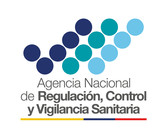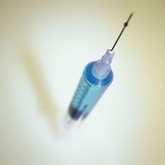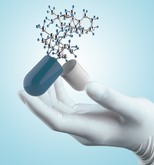Biosimilars/General
Glossary of key terms
Last update: 9 June 2017
Confusion may sometimes surround terms used in the fields of generics and biosimilars. This has been recognized as a problem by EMA, who has expressed the need to propose a more precise definition for biosimilars due to problems arising from imprecise usage of the terms in the scientific literature and elsewhere [1].
Northwest Territories, Canada announces biosimilars switching policy
The Northwest Territories (NWT) has become the fifth jurisdiction in Canada to implement a biosimilars switching policy. The policy begins from 21 December 2021 and includes 10 biologicals.
Biosimilars approved in Ecuador
In Ecuador, the regulatory body for the approval of biologicals is the National Agency for Regulation, Control and Health Surveillance (ARCSA).
Biosimilars applications under review by EMA – January 2022
The European Medicines Agency (EMA) is the body responsible for approval of biosimilars within the European Union (EU). A legal framework for approving biosimilars was established in 2003. Approval of biosimilars is based on an abbreviated registration process, which allows biosimilars manufacturers to provide a reduced package of information compared to originator drugs, provided they can prove ‘similarity’ to the originator or reference drug.
Biosimilars approved in Brazil
In Brazil, the regulatory body for the approval of biologicals is the Brazilian Health Regulatory Agency (Agência Nacional de Vigilância Sanitária, ANVISA), which is linked to the Ministry of Health, part of the Brazilian National Health System (SUS) as the coordinator of the Brazilian Health Regulatory System (SNVS), present throughout the national territory.
British Columbia expands biosimilar switching programme to include insulin
The Canadian province of British Columbia has expanded its biosimilar switching programme to include rapid-acting insulin products. Patients taking Humalog (insulin lispro) and NovoRapid (insulin aspart) will have six months to switch to a biosimilar version.
Viatris/Biocon launch two versions of Semglee to accommodate rebates
Viatris (formerly Mylan) and Biocon have launched two versions of their interchangeable biosimilar Semglee (insulin glargine) on the US market, at different price points, in order to accommodate rebates and increase market share.
Interchangeable insulin glargine biosimilars available through Prime Therapeutics and Walgreens
In November 2021, it was announced that, in the US, insulin glargine biosimilars co-developed by Viatris and Biocon Biologics will be preferentially offered through Prime Therapeutics pharmacy benefit management organization and will be available to members of Walgreens Prescription Savings Club.
Patients from Uruguay request that non-interchangeability of biotherapeutics be regulated
Patients demand guarantees that authorities will not make switches of biotherapeutic drugs solely for economic reasons and without considering the medical decision. This was expressed by the Uruguay Patients Alliance at the First National Biotechnology Forum. The main objective of this forum was to create a meeting place for the academic world, patients and health authorities in the field of biotechnology and innovation.
Concerns over Canada’s New Brunswick transition to biosimilars
Several biological medications whose patents have expired will no longer be covered under provincial drug plans of New Brunswick, Canada as of 30 November 2021. These are to be replaced by cheaper biosimilar versions; however, inflammatory disease associations have expressed concerns about the rapid transition.













